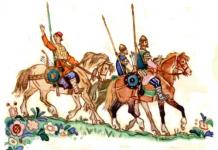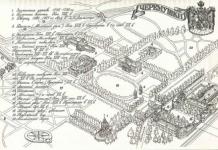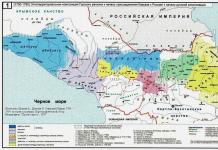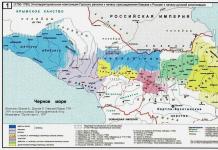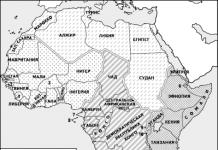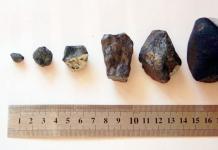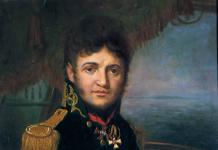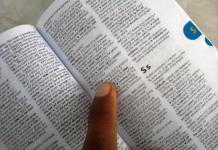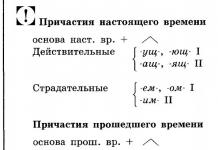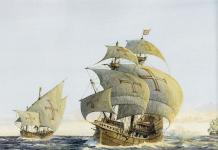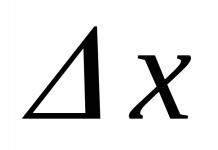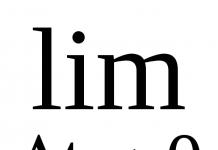The novel Martin Eden by London, written in 1908, tells the story of the thorny creative path of a young writer who, thanks to exceptional diligence and perseverance, was able to achieve universal recognition.
For the best preparation for the literature lesson, we recommend reading online summary"Martin Eden" chapter by chapter, as well as take a test to test your knowledge.
main characters
Martin Eden is a twenty-year-old youth who is desperately striving for self-improvement.
Ruth Morse- Martin's beloved from a bourgeois society, who above all appreciates external propriety and financial well-being.
Ress Brisseden- A close friend of Martin, who understood and supported him in his desire to devote himself to literature.
Other characters
Lizzie Conolly- a simple girl who truly loved Martin and could make him happy.
Gertrude- Martin's older sister, a kind and sympathetic woman, tired of hard work.
Bernard Higginbotham- Gertrude's husband, a shopkeeper, a greedy and hypocritical person.
Maria Silva- an old woman from whom Martin rented a room during his creative searches.
Joe- Martin's friend, who shared with him the hard work in the laundry.
Chapters 1-2
A young strong guy, in whose appearance something “immediately betrayed a sailor”, gets to dinner in the aristocratic Morse family. He looks with curiosity at the rich decoration of the house, but books attract his special attention, at the sight of which “dreary envy and greed wakes up in his eyes, like a hungry man at the sight of food.”
The reason for inviting Martin Eden to the house of a noble family was the fact that he, a twenty-year-old sailor, had saved the young Arthur Morse from an attack. The young man introduces his savior to his sister, Ruth. Seeing "an airy creature with a cloud of golden hair and soulful gaze of huge blue eyes", Martin immediately falls in love with her.
Communicating with a girl, the hero understands how big the abyss between them in education is. He intends to bridge this gap at all costs, and Ruth, impressed by the natural charisma of her guest, supports his passionate desire to learn.
It turns out that Arthur Morse did not invite the young sailor out of gratitude at all. They were driven by a vile desire to show their relatives in all their ugliness the “uneducated chump” and have plenty of fun watching his behavior.
However, Arthur's plans were not destined to come true - Martin, instantly connecting innate observation and "instant learning", was able to adequately present himself and captivate the whole family with stories about his adventures.
Chapters 3-5
After an ordeal at the Morse home and meeting Ruth, Martin returns home drunk. He lives with his sister Gertrude and her husband - a shopkeeper named Bernard Higginbotham, at the sight of which " Martin always rose in disgust ". This is a hypocritical, greedy, vile person who tyrannizes the whole family.
Sitting on the bed in his cramped closet, Martin begins to dream about Ruth. One thought about this girl ennobles and purifies him, encourages him to become better. The young man is determined to devote more time to his education, culture, hygiene, in order to reach the level of his beloved.
Chapters 6-8
The hero enrolls in two libraries at once, having opened several subscriptions in them - for himself, two sisters and Jim's apprentice. Until late at night, he reads books, but the constant reading only "wheted his appetite, and the hunger intensified."
In addition, a “moral upheaval” takes place in the young man’s mind, and he begins to carefully monitor his hygiene: brush his teeth regularly, “cross your hands with a dishwashing brush”, pour cold water every morning. Martin stops drinking, because now he is constantly intoxicated by Ruth, books, the feeling of cleanliness.
Martin desperately seeks a meeting with Ruth. He asks the librarian for advice on how best to arrange a meeting with her, and he offers to call the girl.
When meeting Ruth with a “female eye”, she immediately notices small changes for the better in the appearance of a sailor. The girl feels “pity and tenderness” for him, and a sincere desire to help. She advises Martin to first get a secondary education, and then a higher education. However, neither the young man nor his family has that kind of money, and the only chance to fill the gaps in knowledge is self-education.
Ruth undertakes to help a purposeful young man and imperceptibly falls in love with him.
Chapters 9-16
Having spent all his savings, Martin is forced to go on a long journey to the Solomon Islands. For eight months of sailing, he not only earned decently, but also managed to "do a lot and read a lot."
Upon returning to Auckland, Martin is in no hurry to meet Ruth - he wants to meet her only after he "writes an essay about treasure hunters." He dreams of writing a story and publishing it in a newspaper in order to appear before the lady of the heart in the best possible light. However, his ambitious plans are not destined to come true - the editors return the manuscripts to him, without having printed them. Martin suffers another disappointment - he fails entry exams in high school.
Martin continues to engage in self-development, and Spencer becomes a real sensation for the young man with his philosophy of the unity of the world. Step by step, Martin ascends "to the heights of intellectual life", everything that was previously "inaccessible, reveals its secrets to him".
Martin is trying to understand why his manuscripts are not being published. He eagerly rereads other people's work, trying to uncover the secret of their success. The young man dares to read some of them to Ruth, so that she points out their weaknesses.
The girl is horrified by Martin's stories, as they describe the realities of the life of the common people. The aspiring writer assures her that "life is not always beautiful", but one must describe it truthfully.
Ruth sees the rudiments of literary talent in the young man, feels the dormant power of the artistic power of his word. Her words inspire Martin, and he is ready to conquer the next peaks with renewed vigor.
Chapters 17-19
To be able to freely engage in his favorite literature, Martin needs money. He gets a job as an accomplice in a hotel, and from morning to night he does laundry and ironing. It's "an exhausting job, hour after hour, at a frantic pace", and it takes all of Martin's strength. The vicious circle, in which the young man finds himself, deprives him of interest in life - "there is no place for the universe, for its great mysteries in the mind."
Martin is increasingly overcome by the "numbness of immeasurably hard work". Having collected the necessary amount of money, he does not immediately come to his senses "after a hard test." Only after some time did he revive his former interest in literature.
Martin informs Ruth that, "as soon as he has a good rest, he will set sail again." The girl cannot hide her disappointment - she is in love with Martin and does not want to part with him. The closeness between young people only intensifies - now Martin "could talk with her about everything as an equal", and the gap between them is becoming less and less tangible.
Meanwhile, the Morse family discusses Martin and his influence on Ruth. The girl’s mother believes that a young man without a position in society, a stable salary, and, moreover, four years younger than Ruth, cannot make up a worthy match for her. The couple Morse decides to do this - to wait until Martin goes sailing and send his daughter for a year to Aunt Clara, who lived in the East.
Chapters 20-23
Martin does not write, but only takes notes. He decides to take a little vacation for himself and "dedicate it to love and relaxation". However, Martin is still unable to talk to Ruth about his feelings for her, because "he was afraid to frighten her and was not sure of himself."
Ruth is the first to break down, and an explanation takes place between the young people. Martin understands that his beloved is the same woman of flesh and blood, like thousands of others. This realization helps him understand that there is no abyss between them, except for the social one, but it can also be overcome with a great desire.
Ruth's parents, having learned about their daughter's engagement to a sailor, pretend that they are not against their union. But secretly they hope for a quick break, because they do not doubt the commercialism of their daughter.
Chapters 24-30
Martin is running out of money, he continues to write novels, which are still not published. "Living on credit" begins.
Martin is forced to sell his bicycle, watch, coat in order to provide himself with the meager food. He is starving, and can only occasionally afford normal food, dining with Ruth and his sister.
Martin asks his beloved for two years, during which he will certainly improve his financial situation, and will be able to marry her. However, days go by, and the situation does not change in any way - the work of a novice writer invariably returns unpublished.
Unexpectedly, the magazine "Transcontinental Herald" agrees to publish his story, but they are ready to pay only 5 dollars. Martin is morally crushed, because he expected a much larger fee. He realizes that everything "he's read about high monetary rewards for writers" is not true. Exhausted by constant hunger, Martin falls ill.
At this difficult moment for the young man, checks for small amounts from other magazines begin to arrive. Martin manages to pay off his debts, but most importantly, he is recognized as a writer.
In order to have a stable income, Martin masters the "art of writing short stories for newspapers". However, Ruth does not like this: she wants her lover to abandon his "scribble" and start working in her father's law office.
Chapters 31-37
At one of the evenings in the Morse family, Martin meets Mr. Ress Brissenden - a great freethinker, an intellectual who "knows everything in the world." Being congenial people, Ress and Martin quickly become friends.
They talk for a long time about literature, and Martin, fully trusting his friend, introduces him to his works. Brissenden understands at a glance why they are reluctant to publish - they "have depth, but magazines do not need it."
Martin reads to him his Love Poems dedicated to Ruth. Brissenden is impressed, but he does not understand how such beautiful poetry can be written in honor of Ruth's "pale infirmity". The perspicacious Ress is sure that "a cowardly sissy who grew up under a cap in a bourgeois greenhouse" is not able to appreciate all the greatness of Martin's nature. For happiness, he needs to find "an ardent woman, with hot blood, to make fun of life, and mock death, and love while she is loved."
Brissenden introduces his friend to smart, educated people from his circle. After reading Martin's manuscripts, they advise showing them not to magazines, but to "first-class publishing houses" - only then will the young writer be successful.
Having received a hundred-dollar bill from Brissenden on the occasion of winning at the races, Martin makes gifts to the poor Portuguese Maria Silva, from whom she rents a room, and her seven children. He takes the kids to a candy store, where he runs into Ruth and her mother. For a girl, this is a great insult - to see her lover in the company of ragged ones. She weeps bitterly from shame, but it never crosses Martin's mind to be "ashamed of his acquaintances".
Chapters 38-40
Brissenden and Martin go to the socialist club. Ress encourages the young man of letters to "come out and kick the ass". Martinu enters into a bright, interesting discussion that has raised a lot of noise. To his misfortune, a young reporter is present at the club, who decides to write a sensational article. He composes an absolutely implausible libel and assigns Martin's authorship to it.
The next day, the reporter comes to Martin, who was visiting Brissenden. The unscrupulous youngster wants to interview Martin, naively believing that he will make an excellent publicity. Brissenden advises how to properly spank the impudent boy, and Martin gladly follows his advice.
In retaliation, the reporter writes a nasty article denouncing Martin of laziness and the desire to live at someone else's expense. Soon the young man receives a letter from Ruth, in which she terminates the engagement. She patiently waited until Martin "learned to live as befits a serious and decent person”, but now I realized that they are simply not made for each other.
Martin feels that “a turning point has come in his life” - his relatives turned away from him, his beloved broke off the engagement, and there are no prospects in the literary field. Confused, he finishes the manuscript for Belated.
Chapters 41-45
Martin is even glad that his friend is dead and cannot read the wave of criticism that hit his offspring - "a great poem was used to amuse the public", and everyone tried to make a name for himself on the wave of her success. After receiving a check for $350, he handed it over to Brissenden's attorney.
Martin stops writing like crazy - he finds himself in the grip of complete indifference to literature and his future. And it was at this moment that Fortune smiled at the young writer - checks began to arrive for his manuscripts, which were published in reputable magazines.
However, checks for impressive amounts no longer please Martin, who seems to have burned out from the inside. Having lost Brissenden and Ruth, he feels deeply unhappy, a lonely person who has lost the meaning of his existence.
Remembering how Gertrude once saved him from severe exhaustion by giving the last five-dollar coin, Martin repays her debt a hundredfold. He exchanges five hundred dollars for one hundred five-dollar pieces and passes them to his sister in a "glittering golden stream". Martin insists that, with this money, Gertrude, exhausted by daily hard work, hire herself a servant.
Martin increasingly recalls the beautiful islands of the South Sea. He wants to earn more money to buy a picturesque valley in the bay and live away from civilization.
He meets Lizzie Conolly, a simple girl who has long been in love with him. She is ready to do anything for Martin, and he understands that he can be happy with her, but in his broken heart there is no place for a new love.
Martin's first book, The Shame of the Sun, is published, but he remains indifferent to this event. Martin becomes a fashionable writer, the doors to the most respected houses open before him. Even Mr. Morse admits that Martin deserves the title of honored guest in his house.
To Martin's surprise, the thought of Ruth ceases to evoke in him its former awe and excitement. He understands that "the bourgeois measure of values \u200b\u200bis dearer to her" real feelings, and he was in love with a fictitious ideal of a woman. The real Ruth was ready to ruin his writing talent only because he did not bring the necessary income.
Chapter 46
Having met an impoverished Joe, with whom he worked together in a laundry, Martin decides to give him a decent life and presents a small laundry as a gift. Martin puts only one condition - Joe must be an honest and fair owner.
Martin despises the hypocrisy that has cobwebbed him after he became famous and rich. Wanting to get rid of the vulgarity of civilization, he increasingly thinks about the Marquesas Islands.
Climbing to the deck of the ship, Martin considers taking Lizzie Connolly with him, but "the weary soul protested loudly". During the trip, Martin thinks about his life, which has become, "as for the patient too bright light, cutting tired eyes."
Increasingly, they are overcome by thoughts of suicide. Deciding on a fatal step, Martin climbs through the porthole and jumps into the sea. "Unconscious life instinct" pushes him to the surface, but after several attempts, Martin is given to relax and, without moving, go under water. For a while, rainbow visions, flashes of light flash before his eyes, but soon pitch darkness sets in ...
Conclusion
In Jack London's book, many important topics are revealed, in all its ugliness, the vices of high society are shown, which caused the death of a true literary nugget who did not want to accept the rules of the game of the surrounding society.
A brief retelling of "Martin Eden" will be especially useful for reader's diary. After reading it, we recommend reading London's novel in its full version.
Novel test
Check the memorization of the summary with the test:
Retelling rating
average rating: 4.4. Total ratings received: 203.
Two people enter the spacious hall. The first in an exquisite setting, among expensive decorative things, feels natural; the second moves clumsily and is embarrassed every now and then. A tanned face and a swaying gait betrays a sailor in the guest. The host, Arthur Morza, takes his friend's cap and asks him not to be afraid of his family, which is "ordinary people." While the host is reading the letter, the guest looks around: he eagerly absorbs the surrounding beauty, reads with pleasure the books lying on the table.
Arthur introduces "Mr. Eden" to his sister, a lovely golden-haired girl named Ruth. She invites him to sit down and starts small talk. During a conversation about literature, young people feel embarrassed and drawn to each other. Martin Eden, who has completed six grades, admires a girl studying at the university. With great difficulty, he endures a family dinner, in which the mother of Arthur and Ruth, as well as their brother, Norman, take part. Martin Eden either tries to adapt to new acquaintances, or to be himself, only more cultured. Communication with the family of Arthur saved by him from drunken hooligans strengthens the hero in the desire to learn new knowledge in order to become worthy of Ruth. The girl, on the contrary, by the end of dinner comes to the conclusion that Martin is not so much attractive as dangerous, but, seeing his soul inspired by music, she gives him two books as a farewell and asks Arthur how old their guest is. Brother says almost twenty-one. Ruth thinks that she is three years older.
Returning home in the rain, Martin Eden first thinks about the immortality of the soul, which he saw in the eyes of Ruth. The policeman he meets asks the hero who speaks out loud, where did he get it? On the streetcar, on the way to Berkeley, Martin decides to get serious about his education.
Eden's (Gertrude) sister's husband, Higginbotham, who specializes in retail, tells his wife that he does not intend to keep a drunkard in his house. At night, a young sailor dreams about Ruth in the closet. He tries to evaluate his own appearance and strengthens even more in the thought of becoming worthy of a pretty girl.
In the morning, Martin compares the tortured family life Gertrude with Ruth, has oatmeal breakfast with his son-in-law's second lodger, Jim, after which he goes to the Oakland Library. The power of books overwhelms the hero. He leaves the library only in the evening.
Martin Eden writes four subscriptions (for himself, sisters - Gertrude and Marian and Jim) in the Auckland and Berkeley libraries. He acquires dictionary, begins to monitor his appearance, stops drinking and periodically watches the house of the Morse family. Once he goes to the theater, where Ruth admires from afar.
On the advice of the librarian, Martin calls the girl and arranges a meeting. At the beginning, they talk with Ruth about poetry, then the hero asks his beloved for advice on how to become better. The girl suggests starting with grammar. In the following weeks, Martin meets Ruth six times at her home. Young people study grammar and mathematics, talk about literature, argue about life. The girl falls in love with Martin, but does not realize this report.
Eight months Martin spends at sea, earning money for a living. All this time he is intensively engaged in grammar. Having decided to describe the beauty of Oceania to Ruth, the hero thinks about why not do it for many people. When he returns, he writes an essay about treasure hunters for the San Francisco Watcher and a story about the adventures of two boys for the Youth Companion. Ruth disapproves of Martin's idea of becoming a writer and advises him to go to high school first.
Mr. and Mrs. Morse decide to welcome Martin in order to arouse their daughter's interest in men. A young man spends his monthly salary to buy a bicycle for Sunday riding with Ruth and her brothers. He fails his high school exams in all subjects except English, but is not upset and, against Ruth's wishes, decides to study on his own.
Martin writes and studies a lot, tries to compose poetry, sleeps five hours a day. Manuscripts sent by him to the editorial offices of American newspapers and magazines are being returned. He retypes them on a typewriter, deciding that this is the problem, but no one wants to publish printed stories either. Martin reads his texts to Gertrude. The sister does not always understand what the stories say, and asks for a happy ending.
One day, Martin goes to a lecture with Ruth. Over time, he begins to get involved in the socio-philosophical disputes of workers gathering in the Municipal Park. The young man enthusiastically reads Herbert Spencer's "Basic Principles", after which he begins to notice the relationship between causes and phenomena. Relatives call him crazy.
The more Martin comprehends the world, the more clearly he sees how unsuccessful his first literary experiments were. At some point, he decides to give up special education and ceases to engage in the exact sciences, believing that he can always turn to the services of specialists if there is a need for it. Ruth does not approve of his decisions, and Olney, who opposes her, fully supports Martin.
Ruth is graduating from university. Martin goes on a bike ride with her. He reads his stories aloud, and they seem to the girl either amateurish or "dirty". Last piece causes Ruth to think about bodily intimacy with a man, and she ceases to soberly evaluate Martin's creations.
When the money earned on the last voyage runs out, Martin lies down on the table exhausted. He recalls how all his childhood he fought with a boy named Chump and was able to defeat him only at the age of seventeen.
Martin takes a job in the laundry room of a hotel in Hot Springs, under the supervision of Joe Dawson. The new type of activity turns out to be so exhausting that the young man does not have time to read or think. At times he even forgets that he loves Ruth. At the end of the third week, Martin gets drunk with Joe.
For several months, Martin spends Sundays either cycling to Auckland or drinking. Realizing that such a life turns him into a beast, the young man takes the calculation.
Ruth talks to her mother about Martin. She admits that the young man awakened her sensuality, but she does not say a word about love. On a sailing trip, Ruth leans against Martin, but still convinces herself that she has nothing but friendly affection for him.
In the autumn, reading in nature, Ruth imperceptibly finds herself in the arms of Martin. Between young people there is a declaration of love. Returning home, Ruth tells her mother about what happened. The parents decide to acknowledge their daughter's engagement, but not publicly announce it and wait, in the hope that Ruth will eventually become disappointed in her fiancé.
Martin rents a small room in North Oakland. He plans to leave serious literature for a while and take up day labor. Ruth does not approve of his plans. The young man works hard, but his manuscripts are still not accepted. Martin gets into debt, begins to live hand to mouth, pawns things. His first story, "The Bell Ringing", published in Transcontinental Monthly, earns him five dollars instead of the expected hundred. Desperation plunges Martin into illness. He lies in bed with the flu for three days, after which he receives an offer from the White Mouse to buy the story "Whirlpool" for forty dollars.
Ruth visits Martin and is horrified by the poverty she sees. After her arrival, the young man begins to receive letters with offers to purchase this or that manuscript. Having bought the suit, Martin goes to visit Ruth, where he finds a society of intelligent young people and girls. He communicates with interest with Professor Caldwell, who recognizes the breadth of Martin's mind, and with boredom with a bank teller.
An aspiring writer manages to sell a few small things. Some published works remain unpaid. Best of all, they take stereotyped love stories from Martin, but at some point there is an oversupply on the market, and the young man is again left without a livelihood.
The more Martin learns about the world, the more he becomes disillusioned with people from high society. Meanwhile, Ruth openly declares to the groom that he needs to enter the service of her father's office so that they can marry. Gertrude, met on the street, gives her brother five dollars, invites him to dinner and advises him to come to his senses.
In the Morse house, Martin meets the sick (consumption) aristocrat Brissenden. Friendship develops between young people. Brissenden doesn't understand what Martin saw in Ruth's "pale infirmity".
When the money runs out, Martin goes to the editorial office of the Transcontinental Monthly. He takes his five dollars from the employees by force. In Wasp, this experience fails - local editors are stronger than Martin.
Five dollars goes to pay the fine for Maria, the woman Martin lives with. The aspiring writer fails to redeem his suit and tells Ruth he won't be coming to her house for Thanksgiving.
Higgenbotham sends out anonymous letters to the editors, in which he denigrates Martin, calling him a thief. Brissenden, who has not appeared for a long time, shares with a friend a magnificent poem called "Ephemeris". Saying goodbye, he gives him one hundred dollars, for which Martin redeems his things and makes Christmas gifts to loved ones. A meeting in a candy store with Ruth leads to new disagreements between young people: the girl is ashamed of her lover, who treats Mary's numerous ragamuffins with sweets.
In January, Brisseden introduces Martin to "real people" - smart, intelligent, who see life as it is. upper class living in the working area. The next day, the writer sends his "Shame of the Sun" and "Ephemeris" to the magazines and begins work on the sea story "Belated".
At a dinner at the Morse house, Martin defends his reactionary individualistic views before Father Ruth and Judge Blount. The conversation with the latter ends with mutual insults. Martin decides never to dine with Ruth again.
Brissenden leads Martin to a socialist meeting. The reporter present on it takes the writer for the "leader of the Oakland socialists." The next morning he comes to Martin to interview. The writer, at the suggestion of Brissenden, smacks him on the ass for slander. The next day, an even more nasty article about Martin's revolutionary activities appears in the newspaper.
Ruth breaks off the engagement through a letter. Martin loses interest in work. A few weeks later, he meets his ex-fiancee on the street, and she once again, in person, tells him about the breakup. Returning home, Martin works on "Belated" for five days. During this time, Brissenden manages to commit suicide, and his Ephemeris is highly appreciated by the Parthenon and offers three hundred and fifty dollars for it.
At the end of work on Belated, Martin loses his typewriter. He receives several checks from publishers, which allows him to lead a calm but joyless existence - without books and work. Critics, writers and readers disassemble the "Ephemeris" into its component parts. The Golden Age buys The Adventure from Martin, paying him three hundred dollars. Other magazines and publishing houses are gradually beginning to accept the rest of the writer's works. Martin has a bank account. He pays back all his debts.
Martin dreams of getting a bay in the South Seas and forgetting about literature forever. One day, he goes to Shell Mound Park for the stonemasons' festivities, where he meets old friends, fights for Lizzie Connolly and, having learned about her love for him, offers to make her life easier by giving money to study or a grocery store for her parents. Martin cannot marry, although he understands that it would be right for Lizzy.
Martin Eden is a character in the English writer's novel of the same name. A man of a working profession fulfilled his dream, having achieved recognition in creativity. Nevertheless, wealth and fame did not bring the expected satisfaction to the man.
Character Creation History
The seminal novel (year of writing - 1908), created by the writer after a two-year sea voyage, was published as a separate book by Macmillan Publishers.
London's novel found acceptance with the reading public because he created a character endowed with the features of an ordinary mortal person. A piece soaked from cover to cover philosophical motives, tells about the life path of a former sailor: about ups and downs, joys and disappointments.
View this post on Instagram
Martin Eden and Ruth
The history of the creation of the novel is inextricably linked with creative problems Jack London. It is believed that the main character of the work is similar to the writer himself. Just like the author, Martin devoted most of his life to creativity, labor and diligence seeking recognition. In addition, both of these personalities in their path went against the prevailing literary trends.
There is even the concept of "Martin Eden Syndrome". The characteristic of the expression means devastation and boredom after achieving the desired. People with this syndrome set themselves up for the future, expecting to be happy one day. Needless to say, the result is often sad. And so it happened with the hero of the novel.
Biography and image of Martin Eden
Main character- this is a young sailor, about 21 years old, who cannot boast of wealthy parents. The protagonist learned early on what it was like to earn a living by his own labor.
The novel begins with the fact that Martin protected on the ferry from a gang of hooligans a certain Arthur Morse, who was used to living in a big way. As a sign of gratitude, and at the same time wanting to amuse the family with an eccentric acquaintance, Arthur invited the savior to the family mansion.
On this day, the sailor's worldview turned upside down. The fact is that the young man saw Arthur's sister - Ruth, who appeared in his imagination as the embodiment of beauty and spirituality. Since then, Eden has tried by all means to achieve the location of this girl, and at the same time to find his place in the sun.
To get one step closer to Arthur and Ruth, who are studying at the university, Eden goes to the library - to learn the basics of science. The multifaceted literary world attracted a man who had recently watched the sea waves from a ship so much that in the end it was impossible to tear him away from the book.
Ruth, a girl of conservative and narrow views, helped him educate himself. The beauty tried in every possible way to "reshape" the fan to fit her circle of friends, but she did not succeed.
After the budget was depleted, the man set sail again to earn money for a living. In eight months of wandering, the young man enriched his vocabulary and enriched the store of knowledge.
Martin returned from a voyage not a rude sailor, but a man who acquired cherished dream. His goal is to become a writer. He learned that the authors were paid decent fees, and he also wanted Ruth to admire the beauty of this world with him.
Returning to Auckland, the protagonist sits down to write essays, stories about unseen treasures and adventurers come out from under the pen. Ruth is pleased with the changes taking place with Eden (the girl is in love, but due to her character and upbringing, she does not immediately realize this), but she does not share his attempts to gain literary recognition.
On the advice of Ruth, who sees the guy as a "savage", Eden takes his high school exams, but fails in all subjects except grammar. This upsets the girl, which cannot be said about the lover. The young man is ready to go to his goal, despite the obstacles.
Unfortunately, the publishers reject the first manuscripts. The guy suggests that the situation will improve if the materials sent are not written by hand. Then the young man buys a typewriter, learns to type, and works on self-improvement every free minute.
Eden does not lose hope and sends his letters to the editors, and good health allows him to sleep five hours a day. It would seem that luck is on Martin's side: he becomes an experienced writer, and Ruth, despite the social gap between them, realizes that she is in love.
Soon a black streak begins in the character's biography: the writer participates in a political rally, criticizing the views of anarchists and socialists. But the novice gossip hunter turned everything upside down in his article, calling Eden a socialist. After seeing the publication, Ruth sends a letter where he writes about the breakup.
After the conflict with Martin, the journalist took everything to heart and, in retaliation, began to spread provocative rumors about him. This does not interfere with Eden's career, since, by coincidence, magazines begin to publish his works. But suddenly faced with success, a man lives by inertia and ceases to enjoy money, fame, his new friends.
Now he is famous, but writing is becoming deeply indifferent to him. His heart is not touched by either a new lover or the unexpected return of Ruth.
At the end of the novel, the literary figure decides to move to an island in pacific ocean. On the boat, he has a feeling that he is not able to describe in words. Now the writer knows what he really wants. The man goes on deck and jumps into the water. Only on the second attempt he manages to defeat the instinct of self-preservation.
Having lost the meaning of life, he dies without finding answers to his questions. As if following a quote from the book “A man who does not strive for life seeks ways to die,” the hero found a new goal and immediately fulfilled it. Jack London does not say that the way of the sailor is inherently fatal, but the description life path character is the best illustration.
Martin Eden in films
In 1918, a film adaptation of Jack London's novel, Born Not for Money, was released. It is noteworthy that the script was written by Vladimir Mayakovsky, the futurist poet also played the title role.
Like his literary character, John Griffith Cheney earned his "daily bread" by hard work since childhood. As a child, he sold newspapers, worked as a cleaner, and worked at a factory. Then he is hired as a sailor on a fishing vessel, like Martin Eden. The brief content of the novel in its first chapters is due to the self-identification of the novice writer - a sailor. After all, it was the journey - to the Bering Sea - that filled the soul of the future writer with such vivid impressions that he took up his pen. Then, like his Martin Eden, John Cheney decides to change his life by becoming a writer.
The death of 40-year-old Jack London is somewhat similar to how Martin Eden did it to himself. The summary of the book tells us about suicide. The former sailor dived and breathed water into his lungs. Experts associate the death of Jack London himself with suicide (although this has not been proven) - a deliberate overdose of morphine (the writer weakened them. Further, the logic of the article leads us directly to summary the content of the novel.
Chapters I-II. Plot tie. Dissonance: in appearance - a sailor, inside - a poet
"Martin Eden" begins kindly and ironically. The summary of the first chapter tells us that Jack London, which obviously makes fun of himself in his younger years: physically strong, self-centered, but constrained by poverty and lack of education sufficient for intellectual development.
His hero goes to dinner at the aristocratic house of the Morse family. The reason was that he, a twenty-year-old sailor, rebuffed local hooligans when they tried to rob his peer Arthur Morse.
Here he meets his sister Ruth, who is studying at the university, and recklessly falls in love with her, fantasizing her image. In turn, the girl was more impressed male charisma Martin and his passionate desire to learn.
It was not at all out of noble motives that he was invited, as Jack London, Martin Eden tells us. The summary of Chapter II tells us that behind the external aristocracy and good breeding of Arthur Morse was a banal human meanness. He wanted to ridicule his savior - "an uneducated blockhead" in front of his family, after making a visit, saying that he would bring an "interesting savage."
However, Martin turned out to be on top, using all his powers of observation, all his “instant learning ability”. Without knowing it, he ruined Arthur's plan.
When he tried to provoke him into a rude story, Martin led him in such a way that the rudeness of the sailor was softened by good-natured humor, the spirit of adventure was emphasized and the beauty of the world and events he saw was vividly conveyed. It also organically combined powerful energy and indifference to beauty.

Chapters III-V. The world is crippling, the world is fooling
We see the temporary home of the protagonist. "On the bird's rights" lives here (judging by the way Jack London tells) Martin Eden. The summary of Chapter III is a description of his life in the house of his brother-in-law Bernard Higginbotham.
He is a shopkeeper by profession, but by nature he is a greedy, malicious person, prone to meanness. It was not easy for the sister of the protagonist, Gertrude, to live with him. He exploited her mercilessly.
Martin Eden lives in a "cramped closet" with a bed, a washbasin and a chair. Here, in bestial conditions, inspired by love for Ruth, he decides to change. He makes an important decision: to devote time to education, culture, hygiene in order to rise to the level of his ideal - "flower girl".
He resents the primitivism of his neighbor Jim, who spends free time to dancing, drinking and girls, he refuses his offer to have a fun time.
Martin decides that "he is not like that" and goes to the library. Not without irony, Jack London writes about the first visit to this institution in the novel Martin Eden. The brief content of this plot lies in the protagonist’s depression from the number of “treasures of wisdom” surrounding him and the realization that he does not yet have the key to them (i.e., the knowledge necessary for a full reading). He wandered for a long time through the halls of the Auckland Library, helpless and confused, and then returned home empty-handed.
Chapter VI-VIII. Stage of self-education
Time has passed. Martin Eden immediately enrolled in both the Auckland and Barclay libraries. Moreover, in each of them, in addition to his subscription, he opened subscriptions for two of his sisters: Gertrude and Maria, and also for Jim's apprentice. He carried piles of books to his closet, reading them day and night.

He began reading with the works of Swinburne, then drew attention to the works of Karl Marx, Riccardo, Adam Smith. I even tried to read Blavatsky's The Secret Doctrine...
He was looking for a meeting with Ruth. And even once he went to the theater being well-groomed, in a clean shirt and ironed trousers. Lisey Conolly, a beautiful brunette from a working-class family, wants to meet him. Martin realized that in his heart there was only room for Ruth. On the advice of the librarian, he arranged a meeting with her by phone. With Ruth, he talked only about his self-education. Her advice is standard: first the average, and then and higher education. However, tuition fees exceed Martin's income, and the family will not be able to help him. (How close it was to Jack London himself!)
The young man had only one way - self-education. Ruth really helps him master the grammar. After grammar, he suddenly and not without success began to master poetics.
Martin began to meet with Ruth more often. The girl imperceptibly began to fall in love with him.
Chapter IX-XIII. Martin Eden, stage of self-knowledge. Ignored by editors
The money earned by the sailor earlier was squandered, and in order to earn money he took part in an eight-month expedition to the Solomon Islands. Surrounding noted: his speech became noticeably more correct. In addition, on the voyage, the Norwegian captain provided him with volumes of Shakespeare to read.
Undoubtedly, the brief summary formulated for the novel "Martin Eden" is extremely succinctly original. In English, good old Shakespearean English, Martin learned to express his thoughts while swimming.
When he returned to Oakland, he did not immediately go to Ruth, but wrote an essay in the San Francisco Observer in three days, and then the first part of a whaling story. Now he wrote three thousand words a day. He expected to earn in order to appear before his lady successful.
Soon, disappointment awaited the young man: he failed in high school - everything except grammar. In addition, the editors of the journals to which he sent his essays returned them back to him, without publication.
An unexpected call from Ruth, and ... Martin accompanies her by the arm to the lecture. On the way, he meets and greets Lizzie Conolly and her friend, who are trying to meet him at the theater.
Returning home, to his miserable closet, he, sitting on the bed, painfully thinks: is he right, recklessly falling in love with Miss Morse, a woman not from his circle. He wonders if the love he has chosen will bring him to good?

Martin is finally getting his creative identity right. At first, he was taken aback by the impenetrability of the editors, and then he undertook " brainstorm". Thanks to painful reflections, he, doomed to rely only on himself in his development, comes to the right conclusions. Assessing his previous literary failures, he denounces himself in ignorance, in an unformed understanding of beauty, in the immaturity of feelings. It is valuable that he develops these qualities in himself with his work.
The tool for rethinking was Spencer's philosophy of the unity of the world. He finally understood how mature reasoning is built, he realized how to write, he came to a real creative process: to the denial of his former amateurish rejection of the dullness of the world. He understood: much more important is the harmony of the world.
His conjectures about redundancy " general education” (persistently imposed on Ruth) were confirmed in an impromptu “debate for three”, in which Ruth, Olney (Norman’s friend) and he participated. The opinion that talent should develop only in a certain “own” direction won.
Chapter XIV-XV. self-knowledge
Obviously, as a personal (not documentary, but artistic) confession about his creative path, Jack London (Martin Eden) wrote a novel. A summary of the chapters of this book convinces: creativity develops through trial and error ...
Ruth, at Martin's request, reads his essays in order to possibly find a weakness. She partially succeeds. However, at the same time, she feels the artistic power of Martin, penetratingly describing the "wrong and dirty life" ordinary people which is unfamiliar to her. The emotional strength of the novice author is so expressive that Ruth clearly feels her love. However, for her, the subconscious ideal of a man is the type of her father.
Martin himself is spiritually reborn by this time. He recalls his six-year conflict with a guy named Butterface. Fights were regular. In the end, the opponents (already adult guys) almost killed each other. Stupid, pointless conflict. The main character is horrified inner world in those years... He feels remorse.
Chapters XVI-XVIII. Work in the laundry room of the hotel "Teplye Klyuchi"
You need money to do literature. Martin is an accomplice working for $40 a month, housing and food are guaranteed. Work - exhausting, irregular. The young man felt like a "ghost in the realm of labor." He leaves this vicious circle, depriving of strength and interest in life, having fundamentally decided: you can’t let emptiness into your life.
At the same time, the aristocratic Morse family is discussing it.
There is a conversation between mother and daughter - Mrs. and Miss Morse. Ruth tells that Martin is in love with her, about her influence on him. Mrs. Morse recounts the conversation to her husband. The couple decide when Martin goes to sea (he didn’t earn money in the laundry), send their daughter east to Aunt Clara.
Chapters XX-XXIII. The love and engagement of Ruth and Martin
Ruth finally falls in love with Martin. He instinctively wisely is in no hurry to show his love. Ruth is explained first. She cares about his masculinity, talent.
Parents, in principle, are against it, but decide to consider them engaged, secretly hoping for their imminent break. They were not mistaken, betting on the commercialism of their daughter.
Chapters XX-XXIII. Breakthrough Writer
The protagonist rents a room from the poor Portuguese Maria Silva. He continues to write unpublished articles, desperately living in poverty. Sells things: a coat, a bicycle, a suit, buying the simplest products with the proceeds. He goes hungry, occasionally dining with his sister and Ruth.

Suddenly, one magazine, Transcontinental Herald, agrees to publish his article “The Bell Ringing,” though not for the legal $100 (Martin desperately needs to pay a debt of $56 in payment for purchased and eaten food, housing, things in a pawnshop). Fraudsters are going to value his work at only $5. He is morally trampled, his immunity is reduced, and the former sailor is seriously ill with the flu.
All of a sudden, Martin's articles are getting published, little checks are coming in from magazines. He pays off his debts. Finally, he is recognized as a writer.
However, he has yet to learn the vicious "kitchen" of journalism. Soon, non-payments of editorial offices begin. Martin's return to the "Transcontinental Monthly" of five earned dollars turns into a real farce. At the same time, the editors of the Hornet, strong, clean-shaven swindlers, even "helped him get down the stairs faster." And although they then "drank in honor of meeting", but $ 15 remained with the "winners".
Ruth is short-sighted in her perception of the ideal of a man. She does not recognize the talent of her chosen one, still wanting Martin to have a "solid income" as an employee. She is convinced that he should get a job with her father.
Besides, Ruth is a child of her circle. She is embarrassed that her chosen one communicates with the poor.
Chapters XXXI-XXXVII. creative maturity. Friendship with Brissenden
Sociable Martin meets Mr. Morse's guest, Russ Brissenden, a freethinker, a man suffering from consumption, but in love with life. They are like-minded people who become friends.
Ress came from Arizona, where he had been undergoing climate treatment for two years. Outwardly, he was of medium height, with "sloping shoulders", lively "brown eyes", aristocratic features: and sunken cheeks.
He had an encyclopedic erudition. Martin, having read his poem "Etheremis" (ephemeral) - a philosophical rethinking of Man, called it brilliant. He rethought a lot and in conversation expressed his personal, unique judgments.
In particular, he explained why the magazines did not publish Martin's articles: "You have depth, but the magazines do not need it ... They print garbage, and it is supplied to them in abundance." Having familiarized himself with the poems of the former sailor, Ress expressed the opinion that he was a real poet. He shrewdly warned Martin Eden "not to fly far", because "the wings of that one are too tender." Ruth, he described (with ruthless truthfulness and to Martin's indignation) "pale and insignificant." Her attempts to re-educate the sailor - "wretched morality", due to the "fear of life". Ress advised the main character to find a woman - a "bright butterfly" with a "free soul".
In addition, he promises to introduce him to people “who also read something,” with whom Martin will have something to talk about. To do this, friends first "on a January evening" went to the "working quarter behind Market Street." Here they really met smart and educated people(Idealist Norton, former Professor Craze). Martin (at the suggestion of Brissinden) entered into an interesting dispute with Craze.
Chapter XXXVIII. Adversity and persecution
For the second time, the comrades come to the socialist club.

When discussing interesting speech Martin is also the speaker. He simply brings clarity to the confusion of opinions, based on elementary laws evolution. But there is also a young, zealous and sensational reporter present here.
He composed a libel about the "fierce long-haired" socialists, and, having invented a speech that played on the word "revolution", put it into Martin's mouth, presenting him as a socialist.
In our opinion, it is extremely important to mention the irony with which Jack London (Martin Eden) wrote the novel. Summary of chapters on English language invariably pays attention to one scene from the book ... It's about about the same impudent reporter. In an attempt to "deepen the topic", this slandered, unscrupulous youngster, who sincerely believes that he is "making Martin an advertisement", came to take an additional interview.
Brissinden was also present at the former sailor ... With convincing irony (this is one of our favorite passages in the novel), Jack London tells what comments, holding the reporter's head between his knees, spanked this liar, "doing a favor to his mother," Martin.
In response, this little rat wrote another lie - a libel on Martin. Trust Jack London in this short story expressed a lot of personal (after all, he himself was persecuted for his socialist views).
The “vile trick” of the reporter upset the protagonist of the book personal life. Ruth soon announced the breakup of the engagement by letter. The lackeys no longer let Martin into the house of the Morzzes, arguing that "there is no one at home."
Five days have passed since the meeting of friends, and through the efforts of Martin Brissinden's "Epheremis" was accepted by the Parthenon magazine with an exorbitant fee of $ 350 and with enthusiastic reviews from critics. Going to look for a friend, Martin was shocked: he shot himself in a hotel bed, returning from him and handing over his poem. In a state of crisis, tormented by lack of money, he is finishing his story Belated.
Chapter XLV. The life force leaves Martin Eden
He would later hand over the $350 he received to Brissinden's executor, along with a receipt for the $100 he had given him at his last meeting.
Further - the wheel of fortune began to work for Martin: they began to publish it. First-class magazines vied with each other to publish his articles, offering hundreds of dollars for them. Paid checks came in the mail, but it was too late. He, "burnt out from the inside", could no longer write. Martin was immensely lonely, having lost Ruth and Brissinden. He simply laughed philosophically at the money he had earned.

However, his big heart still found a worthy use for them. His beloved sister Gertrude was exhausted by the miserly husband entrusted to her with the housework. Martin insisted that she hire a servant for his money and then work for her own joy, and not "wear and tear."
A little later, he meets his wandering laundry partner Joe (both of them have left this exhausting and mind-numbing job). Rich Martin gives Joe a small laundry.
Finally, recognition comes to him. "His price" at publishers grows by an order of magnitude. He is fashionable. Doors open before him, he is invited to "venerable houses". Even Mr. Morse considered it an honor to have Martin visit his house. But even the smart and energetic Lizzie Conolly, who is in love with him from a meeting in the theater, cannot awaken him to life. Ruth, who suddenly came, trying to revive the lost relationship, can no longer return his feelings. He finally realizes the mercantilism of this girl and the fact that he previously loved not her, but some kind of “ideal Ruth”. The real Ruth was ready to destroy his talent.
Martin is "sick with satiety of life", cold from the inside and longing for peace.
Chapter XLVI. On the road to death
As if fate is leading Martin to death, he is drawn to a civilization devoid of vulgarity.
Returning to his 1st class cabin, he picks up a volume of Swinborn's poems, drawing attention to the philosophical lines about frailty human life. The suicidal motives of the poet's lyrics find a response in Martin's tormented heart.
He plunges into the sea. The ship sails away into the night, and Martin, having taken a vertical position of the body, tries, plunging into the water, to breathe it into his lungs. He does not succeed the first time. He determines the cause - the will to live. (It is curious that later Jack London would write a story under this title). However, with the next attempts, Martin manages to deceive the body, he sinks deeper, his consciousness fades, rainbow visions appear ...
Instead of a conclusion
When discussing the novel, the question arises, what is its value? Is it worth reading a book if there is already a summary for almost any novel (including "Martin Eden") on the Internet? Briefly, as a site with a library of summaries, is very informative ...
I think Jack London would be offended by hearing this. After all, his book "Martin Eden" is a hymn to natural creativity, an ode to self-knowledge and work on oneself!
How useful it would be for modern writers and copywriters to feel the spirit of Jack London's hero! Moreover, he is presented by the author as a living person, enabling subsequent adherents of literature to avoid their mistakes.
An intellectual, Arthur Morse, gets into trouble - bad guys stuck to him. As usual, a fight broke out, in which none other than a simple and brave guy, sailor Martin Eden, came to the aid of the sufferer. The victory remained on the side of the latter, and as gratitude for his salvation, Arthur invited his new friend to his home. Being among the representatives of the “upper class”, Martin felt awkward, uncomfortable - he was afraid to behave in a wrong way, felt that he lacked that grace and sophistication in manners to approach the level of the gentlemen and ladies around him.
The hero falls in love with Arthur's sister, Ruth Morse, at first sight, and she herself is gradually fascinated by the beauty of this young man (Martin was about 20 years old).
For the sake of his beloved, he is ready to do anything, including giving up bad habits, become intellectually richer and broaden your horizons. Meetings of heroes occur more and more often, Martin studies, tries even to pass the exams, but he fails. Unfortunately, the more Martin learned from books, the stronger his own conviction grew that the stereotypes imposed on him by society were feigned, pitiful, and untrue. So, at first, Mr. Eden is sure that the intelligentsia, including the Morse family belonging to this stratum of society, has a refined taste, extraordinary knowledge, that its representatives can talk for hours about the sublime and tirelessly find new topics for themselves to talk about. What was the disappointment of the young man when he learns that most of the rich and imaginary "wise men" talk only about general things and do not have their own judgment on any occasion. Subsequently, the hero will get to know people from the working class, “socialists,” as Martin’s friend Brissenden calls them, and it is among them that the young man feels free, can calmly express his thoughts. Real minds are found, as Eden concludes, not among the intelligentsia, but among the working people, and it is from the proletarians that real philosophers emerge.
Martin's mind, so hot and sharp, could not help but attract attention. The real comrades-in-arms of the hero throughout the novel - Joe, Brissenden, Professor Caldwell - overshadow the image of Mr. Butler, who saved all his life, only to stay on the winning side and accumulate millions. And for what? For the sake of earning yourself indigestion? He didn't think about it.
Martin aspired to a certain goal - to become a writer, but suffered hardships not because of his own stupidity, but only because there were no funds left. He complains that no one supported him at the most crucial moment when he was starving, and no one wanted to come to his aid. Everyone paid attention to him only after a while, only when he began to receive checks. Judge Blount, with whom Martin once quarreled at the Morses, and Mrs. Morse, Ruth's mother, change their negative opinion of the hero. This denounces the baseness and servility of the society of that time.
Unfortunately, having gone through all the difficulties, such as hunger, hard, truly hard labor in the laundry, misunderstanding among relatives and friends, debts, the hero lost faith in the possibility of a calm, carefree existence. He felt such a disappointment in life that no one could return his thirst for it. Therefore, neither money, nor the timid love of the girl who returned to the hero (at first the heroes were engaged, but due to the fact that the girl’s parents did not like Martin, she decided to terminate the engagement), nor Lizzy Connolly’s disinterested feeling, nor fame could keep Martin afloat, and he decides to commit suicide. To the credit of the hero, it is worth noting that before his death he managed to help everyone he loved - he paid for Lizzie's education, helped Joe's friend, with whom he once worked in a laundry, to buy a laundry from a Frenchman, gave money to his sister Gertrude's husband, Higginbotham, to expand his shop and saved his wife from slave domestic labor, helped another sister, Marian, bought Maria, from whom he rented a house, a farm, as promised, and also published the posthumous work of his best friend, Brissenden, "Evemeris".



